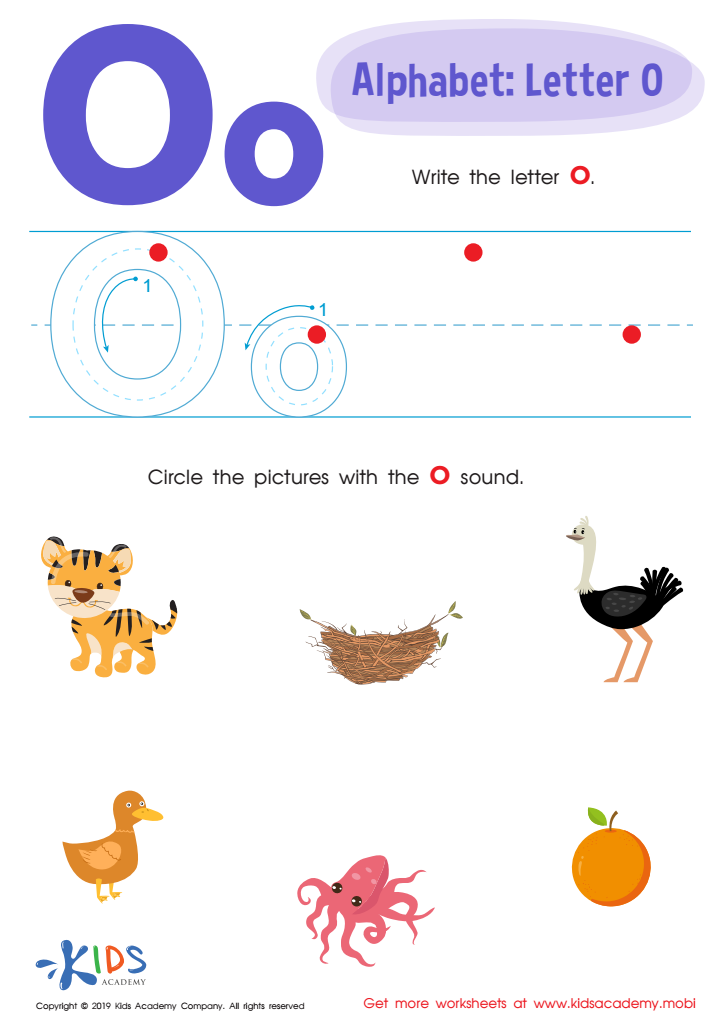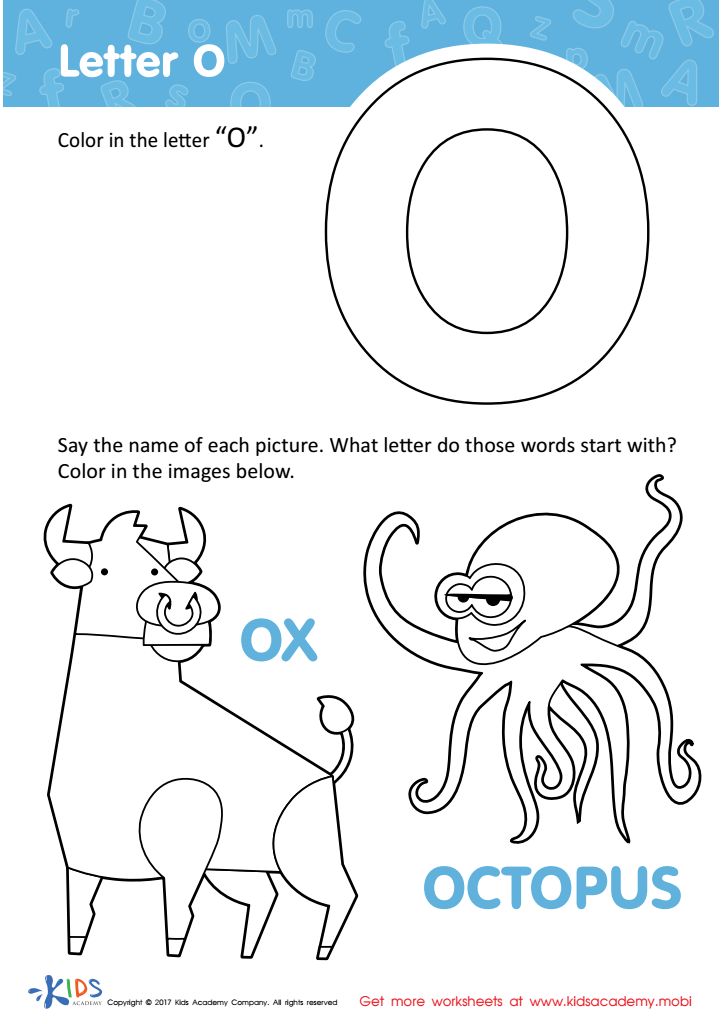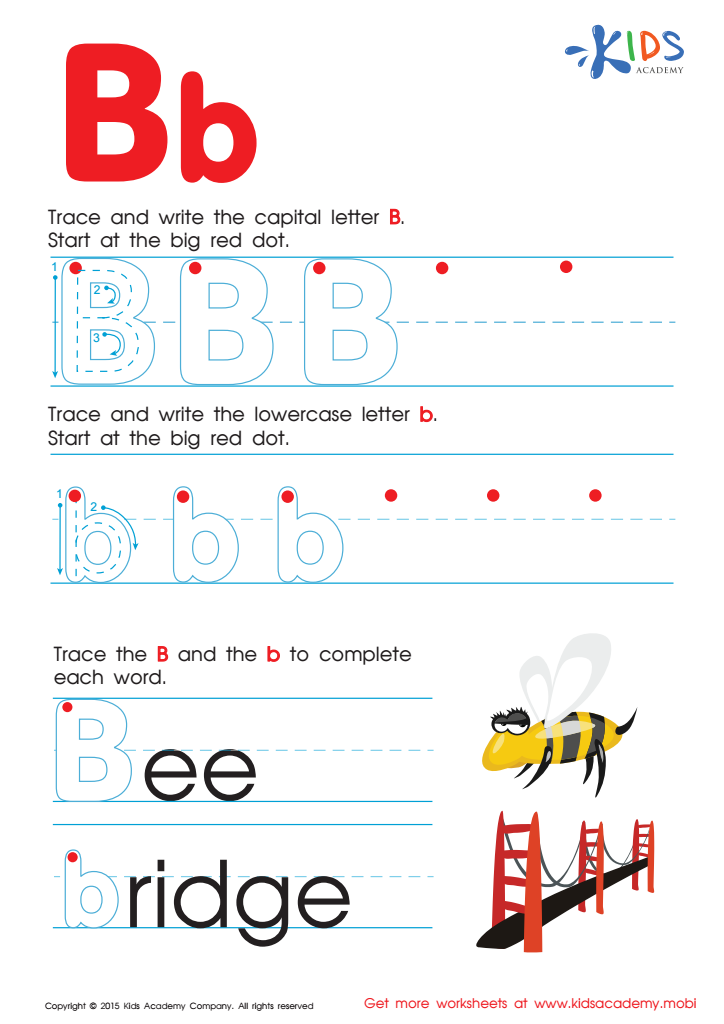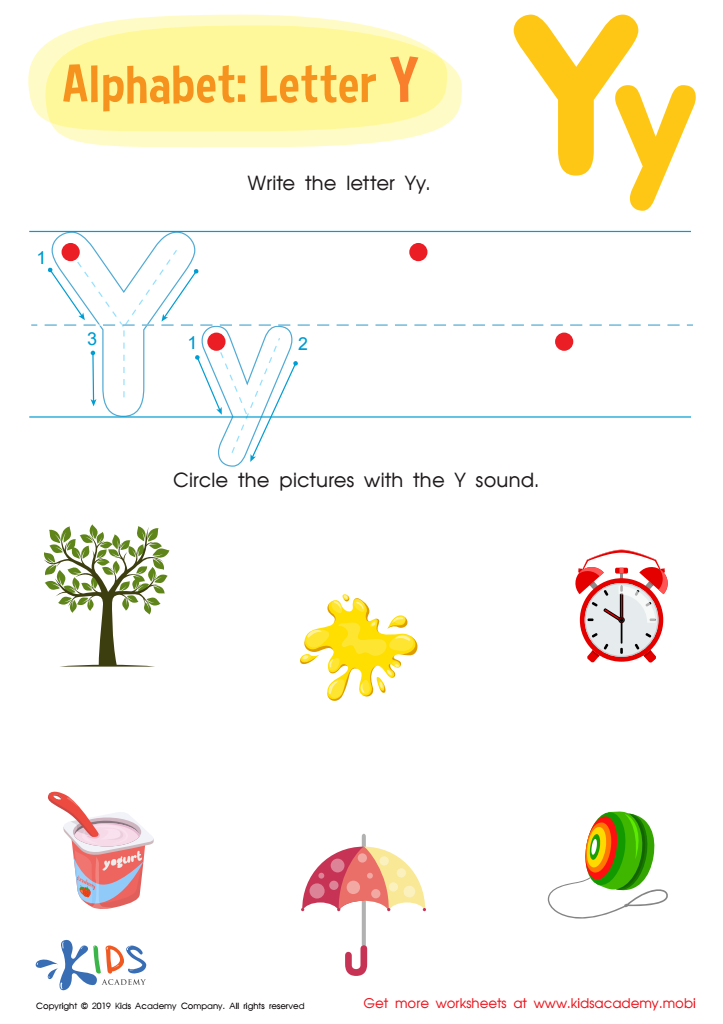Motor skills development Letter Recognition Worksheets for Ages 8-9
5 filtered results
-
From - To
Enhance your child's motor skills while reinforcing their letter recognition with our engaging worksheets designed specifically for ages 8-9. Our Motor Skills Development Letter Recognition Worksheets provide a fun and interactive way for young learners to identify and write letters, fostering both fine motor coordination and cognitive recognition of the alphabet. Each worksheet features a variety of activities, including tracing, matching, and coloring, ensuring a well-rounded learning experience. Perfect for homeschooling or classroom use, these resources encourage creativity and confidence in young writers. Download today and watch your child's literacy skills flourish while they strengthen their motor abilities!


Letter H Tracing Page


Letter O Tracing Worksheet


Letter O Coloring Sheet


Letter B Tracing Page


Letter Y Tracing Worksheet
Motor skills development and letter recognition are crucial at ages 8-9, as they are foundational for a child’s academic success and overall growth. During this stage, children refine their fine motor skills, which are essential for writing, drawing, and typing—activities integral to their learning environment. Developing these skills enhances their ability to manipulate pencils or keyboards, contributing to better handwriting and more effective communication.
Letter recognition is equally important at this age, as children transition from learning to read to reading to learn. Recognizing letters effortlessly aids in decoding words and developing reading fluency, which is critical for comprehending more complex texts. Strong letter recognition skills help boost a child’s confidence and motivate them to engage with reading materials, fostering a lifelong love for literature.
Teachers and parents should prioritize activities that combine both motor skills and letter recognition, such as interactive writing exercises, crafts, and games. Engaging in these activities not only boosts cognitive development but also nurtures social skills and a sense of accomplishment. Overall, supporting motor skills and letter recognition lays the groundwork for future academic pursuits and enhances a child’s learning experience.
 Assign to My Students
Assign to My Students





















